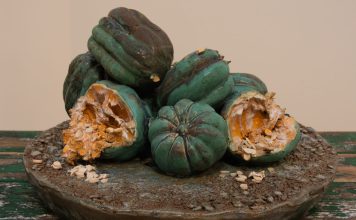I love the warmth conveyed by the saying from our friends to the south. As you know, the direct translation is “My house is your house”—although what it means is that you are “always welcome.” In reflecting on the actual expression, it reminds me of the relationship between a home seller and a potential homebuyer.
Once a homeowner decides to sell a home, his or her motivation shifts from wanting to be the owner to wanting someone else to be the owner. Henceforth, “Mi casa es su casa.”
Once that decision is made, a lot that has to take place: they hire a Realtor and prepare the home for sale. Preparing the home for market could involve minor things such as depersonalizing, decluttering and cleaning, or it might entail repairs, painting or remodeling.
The one absolute is living in your home while it is on the market is NOT like living in your home in a regular day-to-day lifestyle. You have a lockbox on the front door, agents call and show up seven days a week (often with short notice) and people are in and out of your house at all hours. The home must show well or potential buyers will be turned off. That includes keeping it spotless: animals put away, yards trimmed and zero clutter. For safe keeping, all valuables should be removed from the home.
I often find resistance from sellers in the area of decluttering and depersonalizing. Remember the mantra: Mi casa es su casa. We want it to become someone else’s home, so we need to remove ourselves and our lives from the house. This includes family photos from walls, nightstands and dressers. We should remove all political and religious items including books in bookcases that might alienate someone with different beliefs. Some experts even recommend removing sports items as that might upset opposing fans.
Please remember, we want potential buyers to visualize their life in the house—not yours.
Next we must declutter. I was in one home with perhaps more than 100 paintings throughout. The paintings were beautiful, but made the home feel like a gallery. Another home had large, elaborate furniture—all of it beautiful, but more than people could see through. One other family loved cats, so there were climbing towers and cat freeways on many of the walls. Many homes have very dominant paint colors, huge TVs in small rooms, cars under construction and parts all over the garage. My favorite is the empty pool complete with toys and old lawn furniture at the bottom.
Most sellers want all the money, but are unwilling to do what is necessary to get it. There is a belief that the way they live and the way the home is furnished, decorated and maintained is the right way and the buyer should appreciate it. Unfortunately, that’s false 99 percent of the time.
The next time you have a few hours, check out model homes in Gilroy, Morgan Hill and Hollister. Furnishings are well-coordinated—not over the top. Paint colors are fresh and neutral. Kitchen counters are clean with minimal items on them, bathrooms are spotless, paintings are also neutral and there are no personal pictures. New home builders spend millions on professional decorators to make sure homes are viewed in the best possible condition. They hire experts to make sure you will see your life in the house, which results in higher sales prices. One constant is that professional stagers make rooms purposeful, attractive and spacious. Less is always more.
It’s really up to you: If you want buyers to visualize themselves in the home and compete against other buyers to win the bidding war, you must first remove yourself.
And in the end, mi casa will be su casa.
Lee Schmidt is the broker/owner of Realty World South County and can be reached at (408) 782-9933 or le*@**sc.biz.











